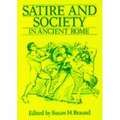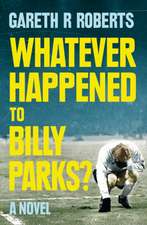Witchcraft In Early Modern Scotland: James VI's Demonology and the North Berwick Witches: Exeter Studies in History
Autor Lawrence Normand, Gareth Robertsen Paperback – 30 noi 2000
Din seria Exeter Studies in History
-
 Preț: 185.33 lei
Preț: 185.33 lei -
 Preț: 182.27 lei
Preț: 182.27 lei -
 Preț: 202.99 lei
Preț: 202.99 lei -
 Preț: 348.38 lei
Preț: 348.38 lei -
 Preț: 254.68 lei
Preț: 254.68 lei -
 Preț: 185.62 lei
Preț: 185.62 lei -
 Preț: 206.49 lei
Preț: 206.49 lei -
 Preț: 260.64 lei
Preț: 260.64 lei -
 Preț: 179.90 lei
Preț: 179.90 lei -
 Preț: 237.15 lei
Preț: 237.15 lei -
 Preț: 483.89 lei
Preț: 483.89 lei -
 Preț: 344.74 lei
Preț: 344.74 lei -
 Preț: 430.27 lei
Preț: 430.27 lei -
 Preț: 439.81 lei
Preț: 439.81 lei -
 Preț: 395.28 lei
Preț: 395.28 lei -
 Preț: 284.73 lei
Preț: 284.73 lei -
 Preț: 301.98 lei
Preț: 301.98 lei -
 Preț: 286.09 lei
Preț: 286.09 lei -
 Preț: 368.36 lei
Preț: 368.36 lei -
 Preț: 329.89 lei
Preț: 329.89 lei -
 Preț: 456.96 lei
Preț: 456.96 lei -
 Preț: 344.86 lei
Preț: 344.86 lei -
 Preț: 339.35 lei
Preț: 339.35 lei -
 Preț: 381.50 lei
Preț: 381.50 lei
Preț: 335.85 lei
Nou
Puncte Express: 504
Preț estimativ în valută:
64.26€ • 67.10$ • 53.19£
64.26€ • 67.10$ • 53.19£
Carte disponibilă
Livrare economică 14-28 martie
Livrare express 27 februarie-05 martie pentru 53.06 lei
Preluare comenzi: 021 569.72.76
Specificații
ISBN-13: 9780859893886
ISBN-10: 085989388X
Pagini: 480
Ilustrații: illustrations
Dimensiuni: 244 x 178 x 33 mm
Greutate: 0.98 kg
Ediția:1
Editura: Liverpool University Press
Colecția Liverpool University Press
Seria Exeter Studies in History
Locul publicării:United Kingdom
ISBN-10: 085989388X
Pagini: 480
Ilustrații: illustrations
Dimensiuni: 244 x 178 x 33 mm
Greutate: 0.98 kg
Ediția:1
Editura: Liverpool University Press
Colecția Liverpool University Press
Seria Exeter Studies in History
Locul publicării:United Kingdom
Cuprins
List of the Documents
List of Maps
List of Illustrations
Introduction
Discussion of the Texts and Editorial Conventions
Chronology
The Court and Politics
The Royal Marriage
Bothwell
Social Contexts and Cultural Formations
The Kirk
Scottish Witchcraft Before the North Berwick Witch Hunt
The Legal Process
Aftermath
Witch Hunting: Examinations, Confessions and Depositions
Texts of the Examinations, Confessions and Depositions
Records of the Witchcraft Trials (Dittays)
Texts of the Witchcraft Trials (Dittays)
Witch Hunt Propaganda: News from Scotland
Text of News from Scotland
Theorising the Witch Hunt: James VI’s Demonology
Text of Demonology
Appendix: Privy Council Orders Relating to the Legal Processes of Witch Trials
Bibliography
Index
Recenzii
“Witchcraft in Early Modern Scotland will be immensely useful for scholars of witchcraft, demonology, early modern women, as well as those who study Scottish political, religious, legal, and social history. The contextual information in Part One is clearly presented and accessible for scholars with only a cursory knowledge of early modern Scotland; and detailed annotations of the documents make them readily comprehensible for readers unfamiliar with Scots dialect. The book is a case-study that becomes cultural history . . . Such rich and carefully read evidence of intimate interactions between members of elite and popular cultures makes an important contribution to our understanding of sixteenth-century social history.” –Albion, Vol.34, Issue 2, Summer 2002







